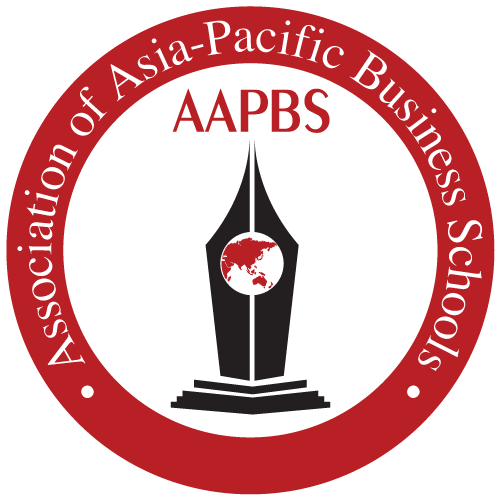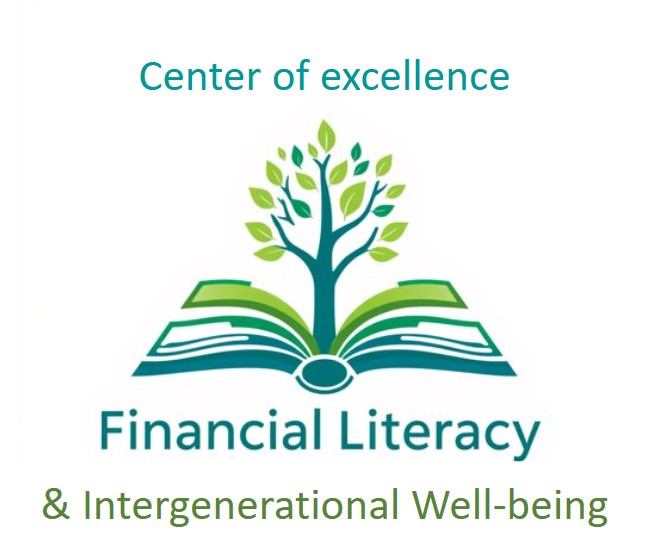Indirect Correlation between Hotel’s Environmental Policy and its Performance through Employee's Environmental Abilities
 Abstract Views:
300 times
Abstract Views:
300 times
 PDF Downloads:
228 times
PDF Downloads:
228 times
Abstract
Pupose: This study examines the impact of employees' green abilities as a mediator on the relationship between hotel green policy and hotel green performance within a hotel group in Bali. Numerous efforts have been made to pursue business sustainability, particularly within the hospitality tourism sector.
Method: The sample of this study consists of 161 employees with supervisor status working in the operations department, selected through convenience sampling. Data analysis was conducted using path analysis with Smart PLS.
Result: The results reveal a significant direct effect of the Hotel Green Policy on Hotel Green Performance and a significant indirect effect through the mediator of employee's green abilities. Therefore, this study concludes that employees' green abilities mediate the significant indirect relationship between Hotel Green Policy and Hotel Green Performance.
Downloads
References
Abdou, A. H., Hassan, T. H., & El Dief, M. M. (2020). A description of green hotel practices and their role in achieving sustainable development. Sustainability, 12(22), 9624.
Abdullah, T., & Pebriyanti, K. (2016). Pengaruh Program Green Hotel Terhadap Keputusan Menginap Tamu Di the Royale Krakatau Hotel Cilegon Banten. THE Journal : Tourism and Hospitality Essentials Journal, 6(1), 1023. https://doi.org/10.17509/thej.v6i1.2013
Bamberg, S. (2003). How does environmental concern influence specific environmentally related behaviors? A new answer to an old question. Journal of Environmental Psychology, 23(1), 21–32.
Buer, C. (2013). Sustainable and Intercultural Hotel Management. Makalah Pada Hochschule Heilbronn, Heilbronn University.
Chan, E. S. W., Hon, A. H. Y., Chan, W., & Okumus, F. (2014). What drives employees’ intentions to implement green practices in hotels? The role of knowledge, awareness, concern and ecological behaviour. International Journal of Hospitality Management, 40, 20–28.
Chen, C. (2016). Building Green Hotel, by Employee’s Green Awareness. Knowledge and Skill. Preprint, 608, v1.
Chen, M. F., & Tung, P. J. (2014). Developing an extended Theory of Planned Behavior model to predict consumers’ intention to visit green hotels. International Journal of Hospitality Management, 36, 221–230. https://doi.org/10.1016/J.IJHM.2013.09.006
Dijkstra, T. K., & Henseler, J. (2015). Consistent partial least squares path modeling. MIS Quarterly, 39(2), 297–316.
Erdogan, N., & Baris, E. (2007). Environmental protection programs and conservation practices of hotels in Ankara, Turkey. Tourism Management, 28(2), 604–614.
Fornell, C., & Larcker, D. F. (1981). Evaluating structural equation models with unobservable variables and measurement error. Journal of Marketing Research, 18(1), 39–50.
Fryxell, G. E., & Lo, C. W. H. (2003). The influence of environmental knowledge and values on managerial behavior in China: a comparison of managers in Guangzhou and Beijing. Journal of Business Ethics, 46(1), 45–69.
Gärling, T., Fujii, S., Gärling, A., & Jakobsson, C. (2003). Moderating effects of social value orientation on determinants of proenvironmental behavior intention. Journal of Environmental Psychology, 23(1), 1–9.
Ghozali, I., & Latan, H. (2015). Partial least squares konsep, teknik dan aplikasi menggunakan program smartpls 3.0 untuk penelitian empiris. Semarang: Badan Penerbit UNDIP.
Graci, S., & Dodds, R. (2008). Why go green? The business case for environmental commitment in the Canadian hotel industry. Anatolia, 19(2), 251–270.
Harlina Putri, L. (2020). Kebijakan Manajemen Dan Reaksi Customer Terhadap Penerapan Green Hotel (Studi Kasus Pada Harris Hotel & Conventions Di Kota Malang). Profit, 14 (02), 1–12.
Irawan, L., Anggraeny, R., & Arifin, M. (2020). Hubungan Pemberian Penghargaan (Reward) Dengan Kinerja Pegawai Dinas Pariwisata Kota Samarinda. E-Journal Adm. Publik, 8(1), 9507–9521.
Istijanto, M. M. (2013). Riset sumber daya manusia. Gramedia Pustaka Utama.
Jyoti, K. (2019). Green HRM–people management commitment to environmental sustainability. Proceedings of 10th International Conference on Digital Strategies for Organizational Success.
Kim, H. J., Park, J., & Wen, J. (2015). General managers’ environmental commitment and environmental involvement of lodging companies: The mediating role of environmental management capabilities. International Journal of Contemporary Hospitality Management, 27(7), 1499–1519.
Kokkinen, E. (2013). Measuring environmental awareness in the world. E. Kokkinen.
Kotchen, M. J., & Reiling, S. D. (2000). Environmental attitudes, motivations, and contingent valuation of nonuse values: a case study involving endangered species. Ecological Economics, 32(1), 93–107.
Mandip, G. (2012). Green HRM: People management commitment to environmental sustainability. Research Journal of Recent Sciences, ISSN, 2277, 2502.
Mbasera, M., Du Plessis, E., Saayman, M., & Kruger, M. (2016). Environmentally-friendly practices in hotels. Acta Commercii, 16(1), 1–8.
Mbasera, M., du Plessis, E., Saayman, M., & Kruger, M. (2018). Determining the impact of green management policies on hotel performance: A manager’s perspective. African Journal of Hospitality, Tourism and Leisure, 7(3), 1–13.
Park, J., Jeong Kim, H., & McCleary, K. W. (2014). The impact of top management’s environmental attitudes on hotel companies’ environmental management. Journal of Hospitality & Tourism Research, 38(1), 95–115.
Prawibowo, D., & Purnamasari, O. (2018). Strategi Kementerian Pariwisata Indonesia Dalam Branding Wonderful Indonesia Melalui Media Sosial. Jurnal Perspektif Komunikasi, 1(3).
Putri, L. H. (2020). Kebijakan manajemen dan reaksi customer terhadap penerapan green hotel (Studi Kasus pada Harris Hotel & Conventions di Kota Malang). Profit: Jurnal Administrasi Bisnis, 14(2), 1–12.
Rajani, I., Musa, H., & Hardjono, B. (2023). 9. Ability, Motivation and Opportunity as Determinants of Green Human Resources Management Innovation. Menulis Artikel Jurnal Internasional & Konferensi Internasional, 10(1–3), 139.
Sabon, V. L., Perdana, M. T. P., Koropit, P. C. S., & Pierre, W. C. D. (2018). Strategi peningkatan kinerja sektor pariwisata Indonesia pada Asean economic community. Esensi: Jurnal Bisnis Dan Manajemen, 8(2), 163–176.
Setiawati, C. I., & Sitorus, P. (2016). Keberhasilan Hotel Berwawasan Ramah Lingkungan di Asia-Pasifik: Faktor Pendorong Apakah yang Dominan? Jurnal Siasat Bisnis, 18(1), 45–62. https://doi.org/10.20885/jsb.vol18.iss1.art5
Setiyaningrum, A., & Sulistyaningsih, E. (2019). Program Pengembangan Strategi Manajemen Pariwisata Berbasis Sustainable Tourism Pada Destinasi Wisata Ancol. Sabdamas.
Song, W., Yu, H., & Xu, H. (2021). Effects of green human resource management and managerial environmental concern on green innovation. European Journal of Innovation Management, 24(3), 951–967.
Standard, A. G. (2016). Asean Green Hotel Standard. ASEAN Tourism Standard Publication.
Sugiyanto, S., & Febrianti, F. D. (2021). The effect of green intellectual capital, conservatism, earning management, to future stock return and its implications on stock return. The Indonesian Accounting Review, 11(1), 93. https://doi.org/10.14414/tiar.v11i1.2286
Sulistyaningsih, E., Bimo, I. D. (2023). Manajemen Keberlanjutan Konsep dasar (1st ed.). Penerbit Atma Jaya. https://lib.atmajaya.ac.id/Uploads/Fulltext/249959/eBook Seri Sustainability 001 - Manajemen Keberlanjutan Konsep Dasar.pdf
Tudor, T. L., Barr, S. W., & Gilg, A. W. (2008). A novel conceptual framework for examining environmental behavior in large organizations: A case study of the Cornwall National Health Service (NHS) in the United Kingdom. Environment and Behavior, 40(3), 426–450.
Untari, N. P., Sudarwati, S., & Wulan, I. A. D. P. (2018). Analisis Attitude, Knowledge Dan Skill Terhadap Kinerja Di Hotel (Studi Tentang Kinerja Alumni Victoria Hotel School). Jurnal Manajemen Dan Keuangan, 7(1), 25–31.
Vona, F., Marin, G., Consoli, D., & Popp, D. (2018). Environmental regulation and green skills: an empirical exploration. Journal of the Association of Environmental and Resource Economists, 5(4), 713–753.
Widiati, I. A. P., & Permatasari, I. (2022). Strategi Pengembangan Pariwisata Berkelanjutan (Sustainable Tourism Development) Berbasis Lingkungan Pada Fasilitas Penunjang Pariwisata di Kabupaten Badung. Kertha Wicaksana, 16(1), 35–44.
Wong, K. K.-K. (2013). Partial least squares structural equation modeling (PLS-SEM) techniques using SmartPLS. Marketing Bulletin, 24(1), 1–32.
Wu, M. H., Thongma, W., Leelapattana, W., & Huang, M. L. (2016). Impact of hotel employee’s green awareness, knowledge, and skill on hotel’s overall performance. Adv Hospital Leis 12: 68–81.
Wu, M.-H., Thongma, W., Leelapattana, W., & Huang, M.-L. (2016). Impact of hotel employee’s green awareness, knowledge, and skill on hotel’s overall performance. In Advances in hospitality and leisure (pp. 65–81). Emerald Group Publishing Limited.
Yuniati, N. (2021). Green hotel concept and practices in Indonesia. E-Journal of Tourism, 8(2), 184–196.
Zsóka, Á., Szerényi, Z. M., Széchy, A., & Kocsis, T. (2013). Greening due to environmental education? Environmental knowledge, attitudes, consumer behavior and everyday pro-environmental activities of Hungarian high school and university students. Journal of Cleaner Production, 48, 126–138.

This work is licensed under a Creative Commons Attribution 4.0 International License.
Articles published in Journal of Entrepreneurship & Business are licensed under a Creative Commons Attribution 4.0 International (CC BY) license. You are free to copy, transform, or redistribute articles for any lawful purpose in any medium, provided you give appropriate credit to the original author(s) and the journal, link to the license, and indicate if changes were made.
Authors submitting to this journal agree to make their work freely available under the CC BY 4.0 license, ensuring broad dissemination and reuse. The full license details can be accessed at https://creativecommons.org/licenses/by/4.0/.
This ensures that they receive the maximum dissemination because there are no barriers to access. This license allows readers to disseminate and reuse the paper, but always requires them to grant the authors and the first publication full credit.
While JEB upholds ethical publishing standards, the responsibility for ensuring originality and compliance with copyright regulations lies with the authors. The journal is not liable for any legal claims related to the content of published articles.
For further inquiries, please contact the editorial team.

 DOI:
DOI:











